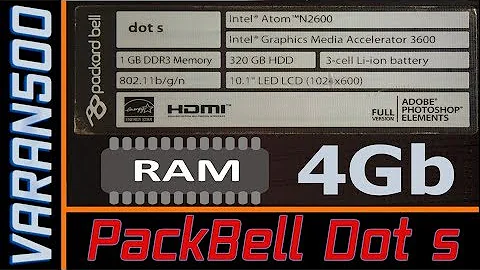Unlocking the Power of Multi-Cloud with VMware and Intel
Table of Contents:
- Introduction
- Understanding Multi-Cloud
- VMware's Role in Multi-Cloud
- Advantages of VMware Cloud
- Necessary Skills for Implementing VMware Cloud
- Choosing the Right Hyperscaler
- Managing Multiple Clouds
- Real-World Use Cases of VMware Cloud
- The Future of Technology
🌟 Highlights:
- Multi-cloud allows for the management of multiple cloud services from various providers.
- VMware Cloud offers a platform that works seamlessly with different hyperscalers.
- Skills needed for implementing VMware Cloud include networking and migration tools.
- Choosing the right hyperscaler depends on workload requirements and native services.
- VMware Cloud simplifies the migration process and offers access to native cloud services.
- Real-world use cases include supply chain management, financial services, and IoT.
- The future of technology lies in tighter integration, ease of use, and expanded marketplaces.
Introduction
In today's episode of B2B Tech Talk with Ingram Micro, we dive into the world of multi-cloud with VMware and Intel. Multi-cloud refers to the utilization of multiple cloud services provided by various hyperscalers. It offers flexibility, scalability, and the ability to choose the best cloud solution for specific workloads. Let's explore this exciting topic further.
Understanding Multi-Cloud
Multi-cloud is often confused with hybrid cloud, but they are not the same. Hybrid cloud combines private and public clouds, while multi-cloud involves using multiple clouds without a common IP landscape. Hyperscalers like Azure, Google, and IBM offer different types of clouds that can work together or separately. This complexity requires effective management to ensure optimal performance and resource utilization.
VMware's Role in Multi-Cloud
VMware plays a crucial role in simplifying the multi-cloud environment. They have developed a multi-cloud platform that seamlessly integrates with various hyperscalers. This platform allows partners and customers to leverage their existing VMware skills and technologies to deploy and manage workloads in different clouds. With VMware Cloud, you can access native cloud services offered by hyperscalers like Azure, Google, and AWS, making it a stepping stone into the cloud.
Pros:
- VMware Cloud provides a familiar and consistent interface across different clouds.
- It allows for the gradual transition to cloud without the need for extensive reprogramming or migration.
- Access to native cloud services offers flexibility and choice.
Cons:
- Managing multiple clouds may require additional networking and migration skills.
- There can be complexity in orchestrating workloads across different cloud providers.
Advantages of VMware Cloud
One of the main advantages of VMware Cloud is its ease of implementation and management. Partners and customers can leverage their existing VMware skills and technologies, making the transition to the cloud smoother. VMware Cloud Console offers a familiar interface that allows for seamless deployment and management of workloads across different clouds.
Additionally, VMware Cloud provides access to native cloud services offered by hyperscalers. This means that customers can benefit from the features and capabilities of each hyperscaler's cloud services without being locked into a single provider. This flexibility allows for the optimization of workload performance and cost efficiency.
Pros:
- Easy transition from on-premises to the cloud using VMware's familiar tools and technologies.
- Access to native cloud services of various hyperscalers.
- Flexibility to choose the best hyperscaler for specific workloads.
Cons:
- Additional skills may be required for networking and migration.
- Complexity may arise when managing workloads across different clouds.
Necessary Skills for Implementing VMware Cloud
Implementing VMware Cloud requires a combination of existing VMware skills and additional networking and migration skills. Partners and customers familiar with VMware's on-premises solutions will find many similarities in the cloud platform. However, understanding networking concepts, such as setting up layer 2 extension and configuring failover, is crucial for a successful multi-cloud deployment.
VMware provides tools like HCX (Hybrid Cloud Extension) to facilitate migration and make it easier to move workloads from on-premises to the cloud. Partners may need to upskill in these areas to ensure a smooth transition without any hiccups.
Pros:
- Utilize existing VMware skills and technologies.
- HCX simplifies the migration process from on-premises to the cloud.
Cons:
- Additional networking and migration skills may be required for optimal deployment.
Choosing the Right Hyperscaler
Choosing the right hyperscaler is essential for maximizing the benefits of multi-cloud. Workload requirements, regional availability, and the desired native services should all be considered when making this decision. Different hyperscalers have different strengths and certifications. Azure, Google, AWS, IBM, and others offer a wide range of cloud services to meet diverse business needs.
Partnering with VMware enables access to multiple hyperscalers. This allows partners and customers to choose the hyperscaler that best aligns with their specific workload and compliance requirements. By utilizing VMware Cloud, organizations can avoid vendor lock-in and gain the flexibility to adapt to changing business needs.
Pros:
- The ability to choose the best hyperscaler for specific workload requirements.
- Avoid vendor lock-in and maintain flexibility.
Cons:
- Evaluating and selecting the right hyperscaler requires thorough analysis and understanding of workload requirements.
Managing Multiple Clouds
Managing multiple clouds can be complex, but VMware Cloud simplifies this process. By leveraging VMware's multi-cloud platform, organizations can centralize the management of their workloads across different clouds. A single console allows for seamless visibility, control, and resource allocation.
Through the VMware Cloud platform, organizations can also integrate other cloud management tools like VMware Aria. This enables the management of multiple clouds from a single, unified platform. It streamlines operations and reduces the complexity associated with managing diverse cloud environments.
Pros:
- Centralized management of workloads across different clouds.
- Unified platform for streamlined operations.
Cons:
- Managing multiple clouds effectively requires a deep understanding of each cloud provider's offerings and capabilities.
Real-World Use Cases of VMware Cloud
VMware Cloud has found its way into various industries and use cases. One prominent example is supply chain management, where companies have turned to VMware Cloud in public clouds due to supply chain disruptions. VMware Cloud provides a quick and easy solution, allowing organizations to move their workloads to the cloud and maintain business continuity.
Financial services also benefit from VMware Cloud, enabling them to Scale as needed and efficiently manage their applications. The use of IoT (Internet of Things) technology has also increased with VMware Cloud, allowing retailers to track customer behavior and deliver personalized experiences.
Pros:
- Swift adoption in supply chain management to mitigate disruptions.
- Scalability and efficient application management in financial services.
- Utilization of IoT to enhance customer experiences.
Cons:
- High-end databases may still be preferred to be kept in-house.
- Depending on the use case, specific compliance regulations may limit the use of public clouds.
The Future of Technology
In the coming year, we expect to see tighter integration between different VMware products across various cloud environments. This integration will further simplify the management and deployment of workloads in multi-cloud environments. Ease of use and simplicity will be at the forefront as organizations look for efficient ways to manage their IT infrastructure.
Expanded marketplaces and buying programs like VMware Cloud Universal will offer customers more choices and flexibility. On-premises solutions will continue to integrate seamlessly with public clouds, allowing organizations to optimize their infrastructure while maximizing cost-efficiency.
Pros:
- Tighter integration and ease of use across VMware products.
- Expanded marketplaces and buying programs for increased choice and flexibility.
- Optimized infrastructure and cost efficiency.
Cons:
- Rapidly evolving technology requires continuous learning and adaptation.
🔮 Frequently Asked Questions:
Q: What is multi-cloud?
A: Multi-cloud refers to the utilization of multiple cloud services from various providers, allowing organizations to choose the best cloud solution for specific workloads.
Q: How does VMware help with multi-cloud?
A: VMware provides a multi-cloud platform that works seamlessly with different hyperscalers. This platform allows for the deployment and management of workloads across multiple cloud providers, including Azure, Google, AWS, and more.
Q: What skills are needed to implement VMware Cloud?
A: Implementing VMware Cloud requires a combination of existing VMware skills and additional networking and migration skills. Familiarity with VMware tools and technologies is essential, while understanding networking concepts and migration tools like HCX is beneficial.
Q: How do you choose the right hyperscaler?
A: The choice of hyperscaler depends on workload requirements, regional availability, and desired native services. Evaluating each hyperscaler's strengths, certifications, and compatibility with specific needs is crucial.
Q: How do you manage multiple clouds effectively?
A: VMware Cloud offers a centralized management platform that allows organizations to manage their workloads across different clouds from a single console. Integration with other cloud management tools further streamlines operations.
Q: What are some real-world use cases of VMware Cloud?
A: VMware Cloud has been adopted in supply chain management, financial services, and IoT applications. It enables organizations to mitigate disruptions, scale their operations, and enhance customer experiences.
Q: What can we expect in the future of technology?
A: The future of technology includes tighter integration between VMware products, expanded marketplaces, and ease of use. Organizations will continue to optimize infrastructure and improve cost efficiency while adapting to evolving technology trends.
 WHY YOU SHOULD CHOOSE TOOLIFY
WHY YOU SHOULD CHOOSE TOOLIFY

























